San Francisco International Film Festival Week 2 Round Up

Arlin is an all-around film person in Oakland, CA. He…
The past couple of weeks have recalled the Treehouse of Terror installment where Homer is damned to hell and finds himself force fed all the donuts in the world, only to ask for more. That’s been me with the documentary program at this year’s SFFILM Fest, which has offered a punishing schedule of films that has left my mind numb and my thighs jellied from biking, but whose conclusion has me feeling an acute absence.
True to form, the festival saved many of the most significant non-fiction films for the back half of the fest. I’m as excited to take you through them as I am to sleep through the entire upcoming weekend, where I’m sure to watch more docs in my dreams.
Pahokee
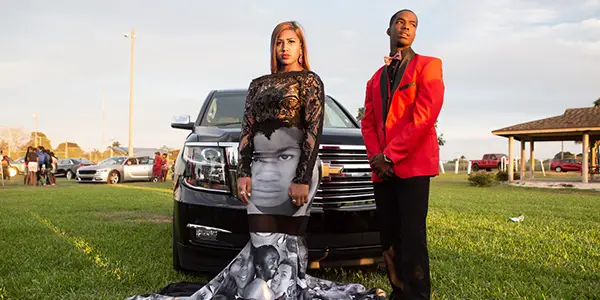
Ivete Lucas and Patrick Bresnan‘s feature debut is a warm and tender community portrait. The filmmakers moved to Pahokee, Florida in order to enmesh themselves in daily life, and it really shows through the emotional life on the screen. The shots are beautifully and thoughtfully composed while the editing exhibits a restrained wit that adds to the narrative(s) without getting in the way. In putting the focus on high school seniors, Lucas and Bresnan have crafted a unique paean to the forever unrecoverable feeling of wrapping up your childhood with a world of possibilities yet to be lived.
Moonlight Sonata: Deafness in Three Movements
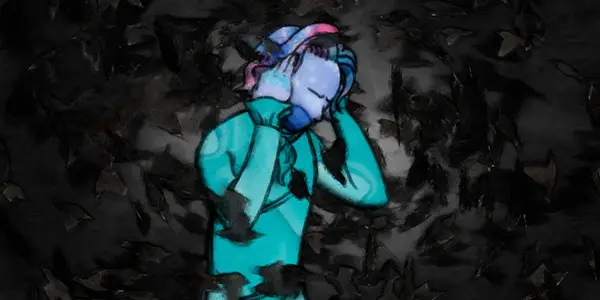
It’s always a tricky thing turning the lens on your own family. In her latest, Irene Taylor Brodsky precariously straddles the line between documentarian and family member. The film focuses on the family’s intergenerational relationship with deafness. One could wonder if Brodsky is shielding herself from her father’s mental decline with a camera, or missing being an active participant in her son’s discovering of himself. As tempting as it might be to get mired in those issues of ethics and objectivity, I was happy to take Midnight Sonata mostly at face value and vicariously enjoy the love so apparent on the screen.
Midnight Traveler
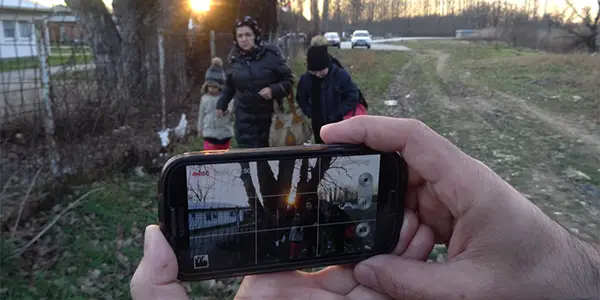
Another instance of familial documentation is the Western debut of Hassan Fazili, who chronicled his and his family’s long and arduous journey from Afghanistan to Europe entirely on three cell phones. Quite simply, this is the best refugee documentary I’ve ever seen. With minimal mediation (the film was “written” by Emelie Coleman Mahdavian) Traveler puts the format’s reputation as an “empathy machine” to work, approximating for the viewer as much as possible the unenviable trek made by those fleeing their homelands. As such it’s also perhaps the only instance I can recall where cell phone cinematography adds to the effect of a film beyond aesthetics, allowing the audience something close to a first-person perspective. I always hesitate to make statements like “everyone should see this move” but…
Always in Season
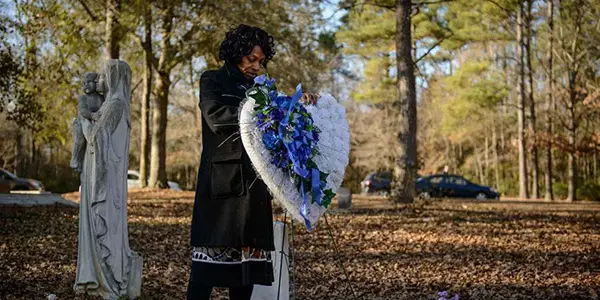
Jacqueline Olive probably could not have picked a more fraught and difficult subject. Always in Season deals with America’s long and shameful history of lynching, up to the present day. Citing Shoah as an inspiration, Olive looks at her subject from multiple, but congruent, angles. Always in Season demonstrates with pain and sensitivity that history is never past. With much of its run time devoted to the case of Lennon Lacy, the film shows how institutions of oppression will continue to perpetuate, and are unable to prevent, the atrocity of lynching so long as they fail to reckon with their role in its genesis.
Walking on Water

Andrey Paounov had some major shoes to fill in choosing to document a project conceived by Christo and the late Jeanne-Claude. The famous artists have had many films chronicling their projects, all helmed by the legendary Albert Maysles, so comparisons are inevitable. Lacking some of the interior life of those films, Water instead embraces the spectacle inherent in Christo’s art, constructing itself mostly through conflict and sheer scale. An undeniably enjoyable film, more than anything it was just nice to see the 83-year old artist on the screen once again, like checking in with an old kooky friend. (Screening held at Berkeley Art Museum and Pacific Film Archive)
The Seer and the Unseen

Sara Dosa chose a wonderful premise for this unique spin on the standard enviro-doc. The film’s subject is Ragnhildur “Ragga” Jónsdóttir, a woman who claims to be able to see elves, who are believed to exist by half of Icelanders. Jónsdóttir is consulted by such believers on construction projects so as to not disturb their homes, churches, and businesses, but it seems major developers have little consideration for the invisible population. It’s an intriguing concept to meet environmental obstinance with a constructed belief system of your own, but I wish Seer spent a little more time investigating the magical world at its center, and a little less focusing on the inescapable realities well-known to enviro-doc audiences.
Honeyland

Perhaps my surprise delight of the festival, Honeyland is a microcosmic tale of a woman whose entire way of life is threatened by leeching men and free-market capitalism. Tamara Kotevska and Ljubomir Stefanov bring us perhaps the documentary protagonist of the year in Hatidze Muratova, a seasoned beekeeper who sells her premium honey in town to support her sickly mother in their stone home in the Macedonian hillside. I think this is the best “bad neighbors” movie I’ve ever seen, and if that wasn’t enough, the film has an abundance of shots of babies holding kittens.
Warpaint: Live Score + Films by Maya Deren
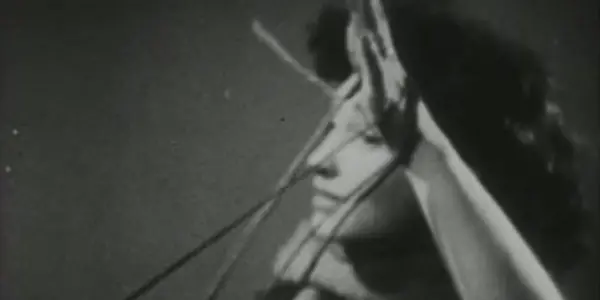
When I saw in the program that there would be an opportunity to see some works by the iconic experimental filmmaker Maya Deren on the big screen I knew I had to get there. Live scoring, inherently revisionist, can either bring a silent film new life or serve as an awkward distraction to the work on the screen. I’m happy to say that Theresa Wayman and Stella Mozgawa minimalist electro-percussive score meshed well with Deren‘s signature dream logic. Due to a scheduling conflict I was only able to stay for the first two films, At Land and Ritual in Transfigured Time, but it was worth it to see these films on a screen larger than my TV, and anyone who has the opportunity to do the same shouldn’t think twice about taking it.
Jawline

Another documentary that was great beyond its abundance of kittens, Lisa Mandelup‘s feature debut stars my other contender for best documentary subject. Austyn Tester, whose greatest desire is to become famous on the internet, is as earnest and endearing as they come. It’s probably of great benefit to a documentarian to find someone who specializes in performing emotional honesty for the benefit strangers. Austyn’s story is complimented by that of “talent” scout and collector Michael Weist, an alarmingly savvy businessman well aware of the looming expiration date of his stable of cute teen boys. Mandelup somehow manages to entirely resist ridicule on all fronts of this weird new world by highlighting the yearning and desperation familiar to anyone who was ever a teenager.
The Elephant Queen

Apple’s answer to the Disney Nature series, The Elephant Queen is an anthropomorphized epic that’s aimed at young children, yet features a surprising amount of hard truths about life and nature. Victoria Stone and Mark Deeble‘s film is brimming with beautiful and intimate nature footage, but I’m not the biggest fan of what it layers on top of it. The Elephant Queen features the dutiful narration of Chiwetel Ejiofor, who lends some further gravitas to the project, but I think what was filmed is strong enough that it could have easily supported the narrative without any additional assistance.
Street Food

The latest from Jiro Dreams of Sushi filmmaker David Gelb does its duty to populate one of the rectangles under the words “Because you watched Chef’s Table”. The first two episodes of the new Netflix series seem to have been resoundingly shaped by their algorithms, applying the slow-motion heavy food porn aesthetic to street food in Bangkok and Osaka, assumingly in an effort to “elevate” them for the foodie set. In doing so, and in neglecting to include any voices of local customers, the series misses so much of what is appealing about “street food”: the lack of pretension. I thought the Documentary Now episode “Juan Likes Rice & Chicken” put the kibosh on this type of thing, but here we are.
Grass is Greener
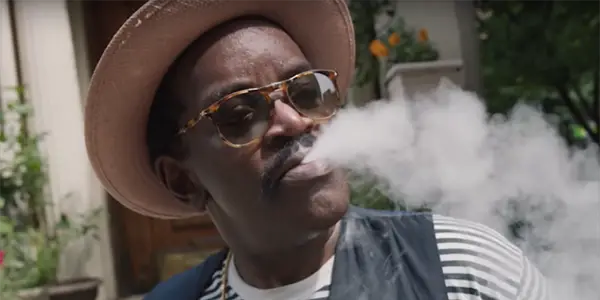
The feature directorial debut of the legendary Fab 5 Freddy attempts to pair the long and painful history of marijuana prohibition in the US with the even longer history of its use and cultural propagation by Black musicians. Grass is Greener doesn’t offer many revelations on either front and is a little slapdash in melding those two narratives, both of which could easily support their own documentaries, but the film is a tidy introduction to the subject. If anything, I’m glad what will inevitably be referred to as “the Netflix weed doc” is largely about the war on drugs’ outsized effect on radicalized communities and the current intense discrimination with regards to the burgeoning legal market.
The Nightingale

Jennifer Kent‘s eagerly anticipated follow up to her breakout debut The Babadook is a dark and dour anti-colonialist revenge parable. The brutality of the opening sequences set a tone that permeates the entire viewing experience (though by no means is the film’s cruelty relegated solely to the first act). There’s no question that The Nightingale is well crafted, well acted, well written, and well shot, so could justifiably be classified as a “good movie,” maybe even a really good one. Even so, there is very little to “enjoy” in the film, a relentlessly unpleasant affair.
Well Groomed
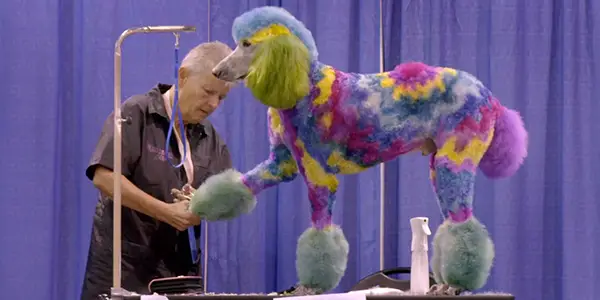
Conversely, the feature directorial debut of Rebecca Stern was absolutely beyond pleasant and had a wealth of things to enjoy. Introducing audiences to the burgeoning world of creative dog grooming, Well Groomed is a ceaseless joy. The film follows four different groomers at varying levels of prominence, but remarkably never feels like it’s shortchanging anyone as the film builds to a climactic showdown at the Hershey Groom Expo. Groomed is loaded with cute and colorful puppers but what really sets the film apart is the pathos Stern creates for her subjects. Well Groomed is a welcome respite in a field of heavy docs.
I should note the screening I attended was dog-friendly, and boy were those dogs friendly! There was some barking, sure, but it all served to enhance the experience.
Meeting Gorbachev
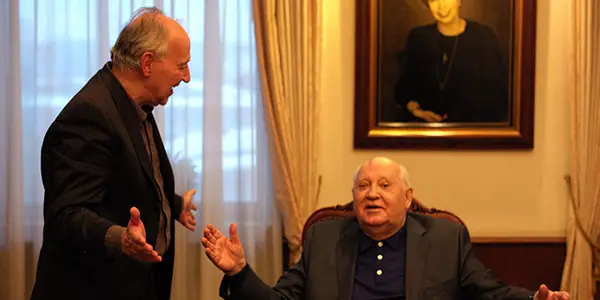
The latest from Werner Herzog and regular collaborator André Singer takes a look at the political career of one seldom discussed in the current milieu, the last leader of the Soviet Union, Mikhail Gorbachev. It’s a valuable summary of a uniquely transformative global figure about whom I knew very little aside from jokes from The Simpsons and SNL. But I was a bit disappointed at how routine it all felt. Though he serves as the interviewer and narrator, Herzog‘s signature wit and pontifications were almost entirely absent from the proceedings. Consequently he’s relegated to the role of reporter, though the reverence for his subject is certainly apparent.
Central Airport THF

Karim Aïnouz takes us inside the eponymous building, which has been repurposed as a giant interim shelter for refugees awaiting their fate in Germany. With a loose but chronological structure, the film employs Ibrahim Al Hussein as the audience surrogate. His journey at the airport is ours and through him Central Airport THF does a good job of imparting the shiftless sensation of indeterminate waiting in what might be referred to as an open air prison. It is an experience characterized by persistent ennui, which perhaps doesn’t make for the most engaging film, but it’s valuable nonetheless for illuminating this hidden world.
Over the Rainbow
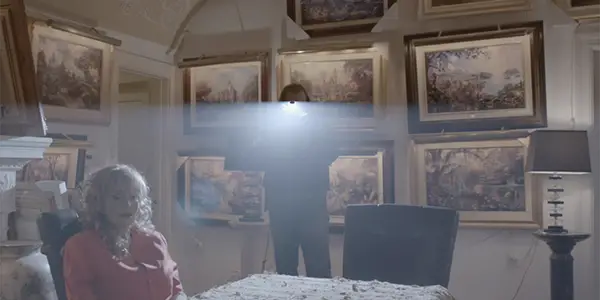
The feature debut of Jeffrey Peixoto is an admirably restrained look at the adherents of Scientology. The film give its subjects the space to plainly advocate for their beliefs without being intruded upon by those seeking to ridicule them. Over the Rainbow starts off strong, but the lack of interconnectivity between interviewees finds it grasping for a viable through line. There are a few transcendent moments in this film both in interviews and direct cinema, but this was one instance where I felt that the final product would have benefitted from some further structure and context, though this would be an easy pick should it show up on a streaming service.
The Hidden City
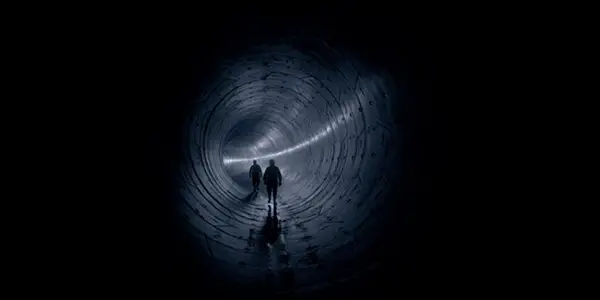
Victor Moreno‘s new film was among the most formally daring docs of the fest. A non-narrative light-poem where darkness is the default, the film offers admission into a world most would never have opportunity. Above and below are just words in the nondescript tunnel realm where water comes from all sides and the walls are stars. If you can settle into its groove and accept its aesthetic of abstraction, The Hidden City will be an entrancing watch.
Hail Satan?

A new film from Penny Lane is always reason to celebrate. But your feelings about Hail Satan? will likely rest with your feelings about its subject, as the film often feels like a promotional film for The Satanic Temple. This isn’t necessarily a bad thing, as the tenets of the nascent religion cum political movement are solid. But it does leave the film a little one-note, the note being that of a righteously indignant teenager. That would be only appropriate for a group that holds a mirror up to a country whose growth has been stunted by religious overreach, but it’s hard to shake the feeling of “c’mon, just a little bit.”
I guess that’s it for this year! Nothing blew me away to the extent that Hale County This Morning, This Evening did last year, which makes selecting a favorite difficult. With last year’s catastrophe as a guide, I don’t know that anything I saw at the festival will win the Best Documentary prize at next year’s Oscars, but right now I would peg Midnight Traveler as the front runner, and I’ll be rooting for it should it get nominated. That is unless it’s up against the film I’m giving my Best of the Festival distinction to, Honeyland, which balanced the playful and dour capabilities offered by non-fiction films beautifully. Other films I want to single out are One Child Nation for the Most Devastating Film prize, Well Groomed for Most Euphoric, and Jawline, which gets the Special Jury Prize for achievements in modern absurdity. Special Mentions go to Pahokee and Knock Down the House, which were both great despite my inability to think of a silly distinction with which to honor them.
Thanks SFFILM for another round of extraordinary programming, see you again next year!
Which films from he fest do you think have the best shot at box office success and year-end awards?
Does content like this matter to you?
Become a Member and support film journalism. Unlock access to all of Film Inquiry`s great articles. Join a community of like-minded readers who are passionate about cinema - get access to our private members Network, give back to independent filmmakers, and more.
Arlin is an all-around film person in Oakland, CA. He received his BA in Film Studies in 2010, is a documentary distributor and filmmaker, and runs Drunken Film Fest Oakland. He rarely dreams, but the most frequent ones are the ones where it's finals and he hasn't been to class all semester. He hopes one day that the world recognizes the many values of the siesta system.













